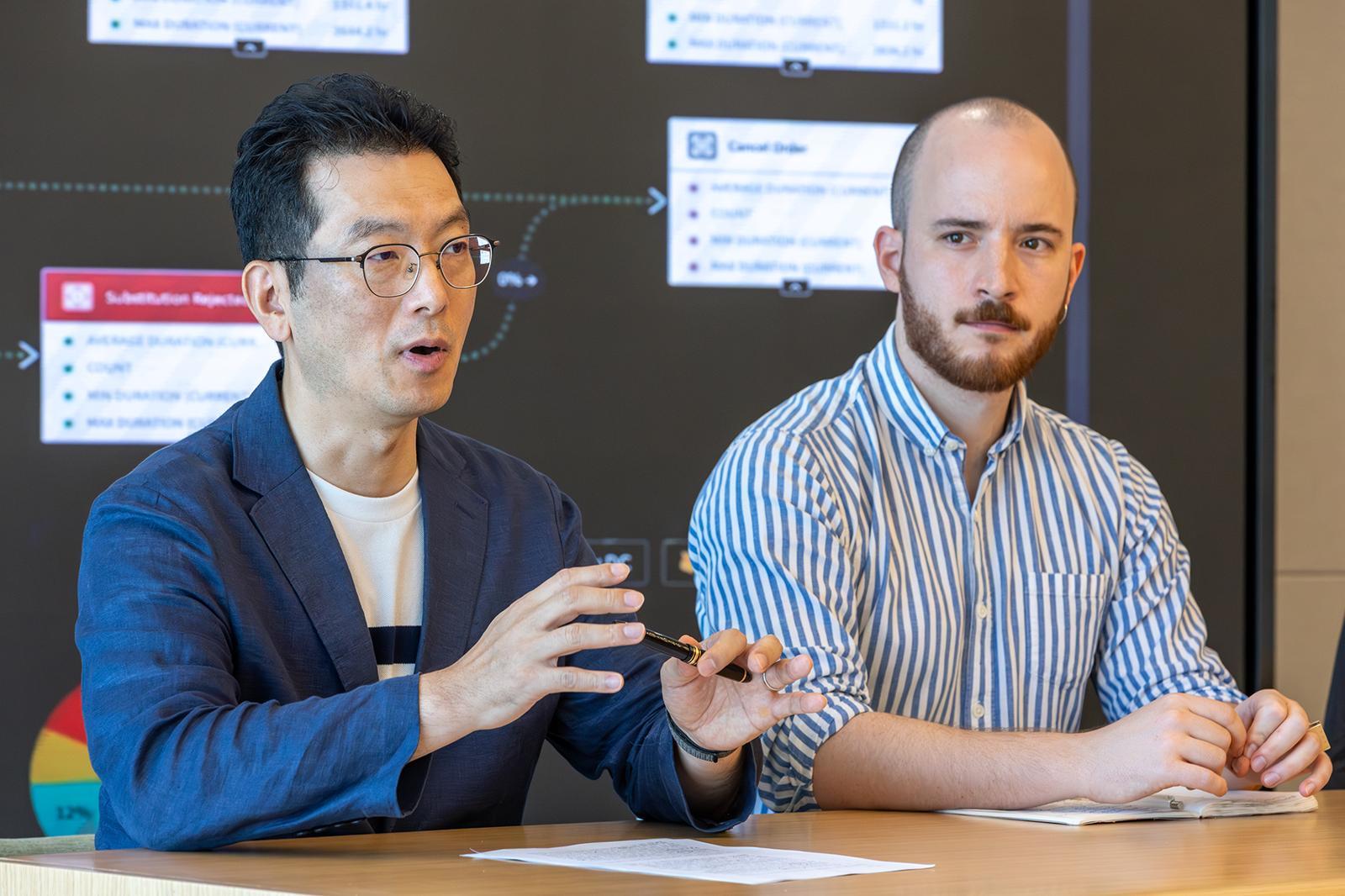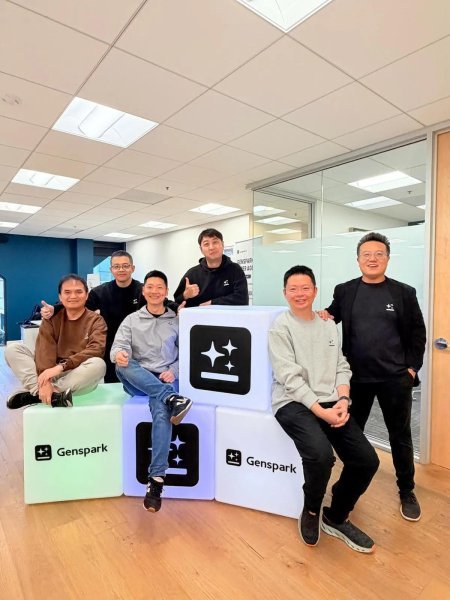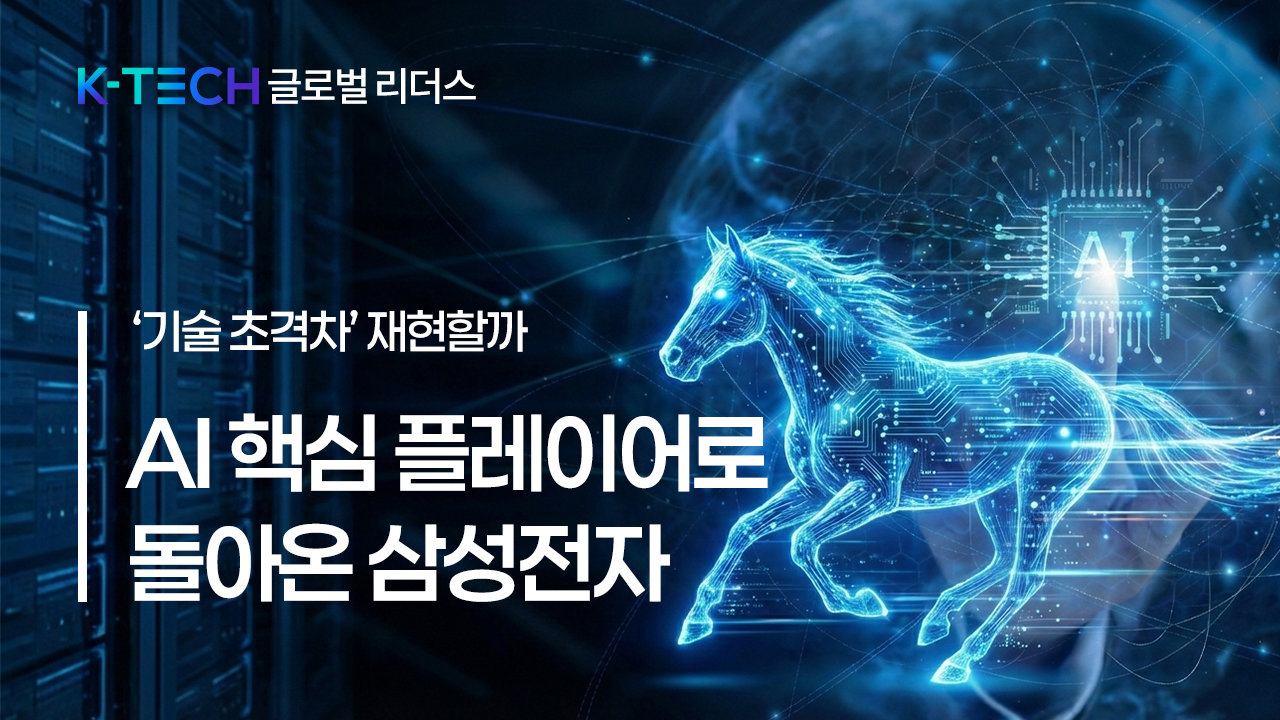
KT
Can Conservative Finance Embrace AI? KT, Palantir Collaborate
Dong-A Ilbo |
Updated 2025.11.05
Reporters from the Dong-A Ilbo IT Science Team introduce noteworthy technologies, trends, and companies in the fields of IT, science, space, and bio. “What is this company?” The behind-the-scenes stories of tech companies changing the world with technology! From ideas that shocked the world to the recent concerns of founders, they delve into everything you were curious about.
Those interested in stock investment may have looked into the American artificial intelligence (AI) software company 'Palantir' once, or even multiple times. This is because the company's stock price has particularly surged this year, drawing attention. However, despite this interest, few seem to know what this company does or what connection it has with Korea. Palantir reportedly entered into a strategic partnership with KT in March this year. KT is said to be the only domestic company that has formed a 'premium partnership' with Palantir. In light of this, Dong-A Ilbo interviewed Byun Woo-chul, Head of KT's P-Tech Division and Aron Szekely, Tech Director at Palantir to discuss Palantir's goals and its collaboration with KT.
Byun Woo-chul, Head of KT's P-Tech Division (left) and Aron Szekely, Tech Director at Palantir (right). Provided by KT
Why is there significant interest in Palantir among stock investors?
Byun=In terms of stock price increase, the 'Rule of 40' indicator can be pointed out. The Rule of 40 implies that a company is good if the sum of its revenue growth rate and operating profit growth indicator exceeds 40%. Palantir has exceeded 40% for eight consecutive quarters. In the second quarter of this year (April to June), the company with the highest rate was Nvidia, followed by Palantir. Thus, it can be seen that Palantir's high stock price is not a bubble but has a reason. With the advent of large language models (LLM), many AI companies are claiming to transition into AI companies. However, many of these companies remain at the level of AI chatbots or retrieval-augmented generation (RAG, an AI framework that combines the strengths of existing information retrieval systems like search and databases with generative LLM functions).
However, Palantir is the only company that has proven 'actionable AI' that can be applied in real-world scenarios. This is the biggest differentiator, and what makes this possible is 'ontology' (integrating fragmented data into concepts that anyone can understand).
Szekely=Palantir engineers seem to be obsessively focused on providing something of value. They have continued to grow based on a mindset of finding something that customers feel is valuable and providing products related to it to lead the industry.
Why did Palantir enter the Korean market? There seem to be many countries with larger market sizes than Korea.
Byun=Korea's GDP ranks in the top 10 globally, and its manufacturing capability is at a global top level. Moreover, Korea has pursued a growth policy centered on large conglomerates. This aligns well with Palantir's growth method of solving real customer problems and generating significant returns through enterprise contracts with large companies. Szekely=Korea has a substantial scale not only in manufacturing but also in the finance sector, and it is well-equipped with a technological layer. One of the characteristics of Korean companies is their mindset of breaking through limits, which aligns with Palantir's mindset of continuous growth and development.
Currently, Korean customers using Palantir are among the top 10 large corporations. Furthermore, Palantir is targeting major sales efforts at large corporations ranked 20th to 30th in Korea.
Why are KT and Palantir collaborating?
Byun=In the past, KT's image seemed to be that of a 'giant dinosaur.' Although it is a company with deep expertise based on a long history and experience, it needed to consider how to survive in the AI era, where the pace of change has significantly accelerated. The answer was sought in AX (AI transformation). KT envisions leaping forward as an 'AX Accelerator' through a premium partnership with Palantir. At the core of Palantir's mission to solve customer problems is the FDE (Forward Deployed Engineer) model, which KT aims to internalize. FDEs are engineers who solve problems from the customer's perspective by thinking in the same way as the customer. There are about 20 Palantir engineers nurtured in the Korean market, and half of them have joined KT.
One of the differentiators of the premium partnership is that, unlike other partners, Palantir is introduced to solve actual internal tasks at KT. Solving a customer's problem means solving other customers' problems based on the experience of successfully solving a customer's problem, but there is a limit to selling something to a customer without having solved it ourselves.
In this process, more capabilities will be transferred from Palantir and firmly internalized. The goal is to secure 30 engineers by the end of the year, and recruitment and internal tasks are being carried out to achieve this efficiently, with a program being jointly discussed with Palantir.
Byun Woo-chul, Head of KT's P-Tech Division. Provided by KT
What capabilities do FDEs possess?
Szekely=Two core abilities can be identified for FDEs. One is the ability of 'Decomposition.' It is the capability to constantly question and delve into the true meaning of a problem to find opportunities for actual decision-making or action. The other is 'Ownership.' It is not just doing what is instructed but expressing opinions and focusing on areas where high value can be created in one's assigned tasks. Aron Szekely, Tech Director at Palantir. Provided by KT
Is there another meaning to the premium partnership between KT and Palantir?
Does introducing AX into the financial industry pose security risks?
Szekely=Palantir and KT have jointly developed the SPC (Secure Public Cloud). It is a cloud service that provides an extremely high level of security to customers, encrypting all data entering the cloud while ensuring it exists and is backed up only within Korea. Users of the cloud can operate with minimal permissions, and malicious data alterations are restricted. Additionally, through the 'Foundry Security Ecosystem,' functions have been developed to control security, such as protecting personal or confidential information at the data level. Byun=There are many misconceptions that open clouds like SPC are vulnerable to security, but they can actually provide a more robust security environment than on-premises. It is challenging to keep up with technological changes of the times in an on-premises environment. Even Citibank, a leading American bank, uses Palantir's public cloud environment without issues.
AX in the financial industry has become an unavoidable, realistic issue. This is why KT is creating an SPC environment and advancing it with Palantir.
Kim Ha-gyeong
AI-translated with ChatGPT. Provided as is; original Korean text prevails.
ⓒ dongA.com. All rights reserved. Reproduction, redistribution, or use for AI training prohibited.
Popular News














